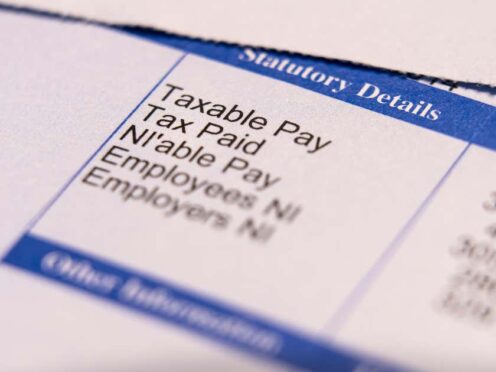UK workers have witnessed a prolonged pay squeeze that has left real average wages only £16 a week higher than in 2010, according to new research.
The Resolution Foundation think tank said that real wage growth has improved notably in recent months, as wider inflation has slowed, but said it came after the significant effects of the financial crisis, Brexit referendum and cost of living crisis.
The research, which comes less than two weeks before voters go to the polls, found that real wage growth – pay once the rate of inflation is taken into account – is 1.6% higher across the total UK workforce since 2010.
However, it highlighted that this was significantly larger for the real hourly pay of people in low-paying occupations, such as cleaners, shop assistants and bar staff.
This was driven by rises in the minimum wage in 2016 by then chancellor George Osborne, as well as recent increases under Prime Minister Rishi Sunak.
The latest data from the Office for National Statistics (ONS) found that regular earnings growth remained at 6% in the three months to April, and continued to outstrip price rises – up 2.9% when taking Consumer Prices Index (CPI) inflation into account.
Pay growth has outstripped inflation for about a year but this followed an 18-month period when inflation significantly outstripped wages, according to the ONS.
The think tank highlighted that the longer-term growth in the jobs market has now slowed, with latest monthly data showing another decline in vacancy numbers.
Hannah Slaughter, senior economist at the Resolution Foundation, said: “Britain’s prolonged pay depression has left average earnings just £16 a week higher than they were back in 2010, despite the welcome return of rising real wages in recent months.
“Worryingly, Britain’s decade-long jobs boom during the 2010s has also gone bust, with the UK one of only a handful of countries where employment has yet to return to pre-pandemic levels.”
It comes amid scrutiny of the major parties over their labour market policies in the run up to the July 4 General Election.
Ms Slaughter said: “The Conservatives’ business-as-usual approach to the minimum wage and employment rights stands in stark contrast to Labour’s plans for the biggest shake-up of the workplace in a generation.
“But while the big labour market challenges facing Britain offer reasons for bold new policies, the combined scale of these reforms means they should be implemented carefully and after consultation.”
